Serpent Dream - MNZ Interview: The Space Between Us 001: Serpent Dream

In the first of a series of interviews with musicians who primarily colour their musical worlds wordlessly, Mike Alexander from Muzic.net.nz caught up with sonic explorer James Costin, who most notably works under the alias Serpent Dream.
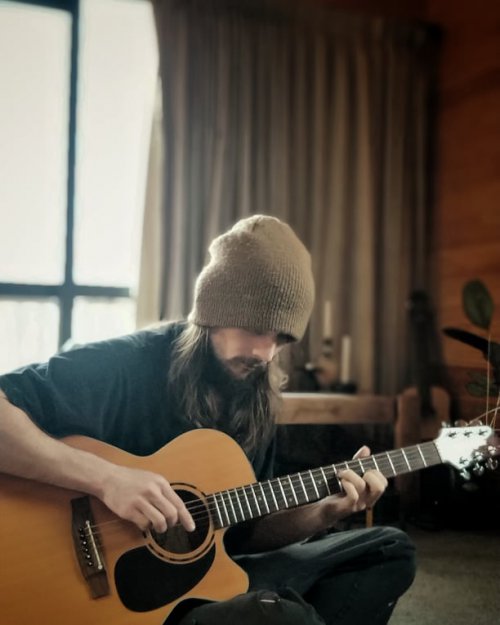 It’s no secret, you were born in Canberra, but what is something you secretly admire about being Australian?
It’s no secret, you were born in Canberra, but what is something you secretly admire about being Australian?
I enjoyed growing up with magpies. They have such musicality to them, especially when they all come together to amplify and sing. That's one thing I miss, they don't do that here. That and being lucky enough to explore and experience such vast and changing landscapes.
Memories can be such a formative part of who we are, do you have a favourite childhood memory?
I have some very vivid scenes come to mind. I remember where I grew up at a certain park, there was this epic maze. It was pretty hard and adults would get lost in it, you could explore for hours and was fun discovering all the hidden things, like decaying trains and old artifacts of the area. My favourite memories are of those times where the world is magical, full of mystery and all-consuming.
Was your parents’ record collection worth raiding as you discovered your love for music?
Depends on your taste in music! I remember my dad had a decent record collection. We listened to the likes of Elvis, ABBA and Daddy Cool and lots of that kind of music when I was a kid. I enjoyed it but I started my musical journey with my CD collection starting with Gorillaz and ending with Dead Can Dance with many titles in between that greatly inspired me.
What one piece of music, more than any other, defined your youth?
If I had to pick one it would be Heritage by Opeth. I remember listening to that record again and again. It was my turning point into all kinds of new music outside of the metal that I was listening to. It was one of the albums that made me want to learn guitar and to write music of my own.
Was a career in music always on the cards or did you have a plan B?
I have loved listening to music most of my life, so I started learning how to play guitar. Early on, there was a pretty big disparity between my skill level and what I heard in my head. Learning music production was my plan B; although to be involved in music in any way would have been satisfying. Being a producer and mixing engineer in this day and age has its own set of challenges. And being an artist mostly focused on recorded music is hard as well. It is scary to think about having an income solely from my art and craft. It feels like there is too much potential for money to influence what music I make and what projects I take on, so I have a day job. I'm fortunate to have found a nice balance between being in my studio and planting trees. I am living my plan B, to be honest. I am open to whatever opportunities come to me, but I have no illusions about how difficult it is to be fully professional in the music industry today.
 Are you an avid reader?
Are you an avid reader?
I love books, I read quite a lot, mostly philosophical musings on the world, but not in an academic sense. I am currently reading The Old Ways: A Journey on Foot by Robert MacFarlane. It's a very thoughtful and ponderous book on roads and paths and how they shape the inner and outer landscapes of the world and the human mind.
You have a degree in audio production. What was the fascination there?
I picked up the acoustic guitar when I was 21, but I always wanted to do more as I was lacking in skill to match my vision. Audio production made a lot of sense as I am a big fan of recorded music. As I learned the tools, I found more and more that I was producing my own music for assessments. I found it so fascinating that I could capture these ideas and manipulate the sounds into something tangible and expressive of my inner world. As I learned more about the audio process this pushed me to develop my musical ideas further and has taken me to where I am now.
How long have you lived in New Zealand and what prompted the move?
One year ago, I was feeling creatively stuck living in Canberra. I had plans to quit music to teach English in Vietnam. Around the same time, I met my kiwi partner, a Wellington-based glass artist, and visited her in New Zealand for a month when the Covid-19 lockdown happened. I ended up missing my flights to Vietnam and stayed up in the hills with her and some good friends. It was through them that I was introduced to Nautilus Creative Space and a whole bunch of successful creative people. I found the whole experience invigorating and things fell into place; a new studio and a new sense of inspiration landed in my lap. This resulted in me finishing my latest work Nova which, in retrospect, I think needed me to go through that process to understand my role as a character in the music. Things have come full circle now. I feel like I'm really starting to understand and realise my artistic self-expression.
 Is there any particular reason you chose the alias Serpent Dream?
Is there any particular reason you chose the alias Serpent Dream?
I remember coming up with the name during my studies for a project. I wanted to make mysterious and strange music. Having Serpent Dream as my title for the project lends to this ethereal yet earthy sounding soundscape I want to create. I always liked the idea of the serpent being a symbol of power, health and protection in various cultures around the world. Specifically, the devil and evil are represented by the serpent in one place and as a creator god and force of good in others. I find this dichotomy a great analogy to my music.
January 13, 2016, is a special date. It was the day you released your very first recording – Awaken? Do you recall if you were nervous, excited or relieved?
I spent a lot of time on that record. Awaken was part of a full EP for my diploma. It was the only single I released of the project, as it was the spark of the sound I wanted Serpent Dream to have. The feeling was mostly relief because I had been so focused on getting the mix right I had driven myself a bit mad. I was also quite proud of finally producing my first music.
Your debut EP The Language of Things is both earthly and otherworldly. I was fascinated by your use of field recordings and Nasa deep space audio samples. Were these the starting points for your compositions?
The process of writing that EP was interesting for me. I had just come back from a road trip and there was a lot of time spent sitting silently with the natural world. I kept hearing this rolling thunder and a flute in my head and had to document it resulting in the first piece I wrote, Ocean Sky. A lot of the sounds worked like that. I would get the sense of a space or place and then go out to get it, synthesises it or sample it. The Nasa samples came in at a point when I realised I wanted a counterpoint to these earthy sounds and make things go to a vast and ethereal place.
I was surprised because the songs are more structured with recognisable instrumentation, whereas your most recent EP Nova is more amorphous.
I never really want to make the same record twice, so I like to experiment with different approaches. At the time of writing Nova, I was very interested in slow evolving soundscapes and long-form structures, I had this concept and a desire to create something different to the last record with more electronic elements. I wanted to tell a story with the sound as well to reflect the narrative which became this shifting electronic soundscape.
 I gather there’s a connection though as the dialogue in Nova had its origins in a road trip you took around New South Wales where you recorded field samples for The Language of Things. Did you have the concept for both EPs in mind before you went travelling?
I gather there’s a connection though as the dialogue in Nova had its origins in a road trip you took around New South Wales where you recorded field samples for The Language of Things. Did you have the concept for both EPs in mind before you went travelling?
That's right, I consider Nova a sequel to The Language of Things. They are intrinsically linked. There was no intention of writing any of this music initially. They came about after the fact mostly when I already had a lot of the source material to draw from. I was writing a lot of music at the time after my graduation. Many of these songs lay unfinished as they were all just ideas, There was a light-bulb moment when I started writing these EPs, I had found my inspiration and means of expression.
In some respects Nova is almost an exploration in consciousness as different voices ponder existential questions. Was the dialogue pre-meditated or did it just evolve from informal “campfire” conversations? To what extent did those conversations change you and impact the way the music evolved?
The project started with an invitation to my friends to talk about life, death and all things in between, I used the parts that spoke to me most. In having these conversations I found a lot of my own thoughts and feelings were echoed and some new perceptions to draw from formed. The voices and sounds worked symbiotically once they were placed in context
In listening to the dialogue – the, hopes and dreams and aspirations along with the very human and natural self-doubts and fears that are expressed, I was reminded of the famous quote, there can be no rebirth without a dark night of the soul. Any comments?
I think to grow and to transform, personally, in relationships and community, there will always be some friction, It is hard to look into the heart of our insecurity, sadness and dissatisfaction and realise we are responsible for our own well-being, action and perception or how we move on from things. I think it takes a shock, like death or heartbreak to understand parts of our lives, but you have to be open to it, be able to suspend what you think is true and let yourself be in that space. To create something new sometimes you have to let go.
Novas are generally fairly transient stars that can make a spectacular appearance and then fade just as quickly. That’s almost a metaphor for life? What did you have in mind?
I think it fits for a couple of reasons. Firstly life is short. We think it's long. Sometimes it feels like we have forever and that old age is so far away but time flies and no one truly knows how long they have. In other words, I know that people can live more in a few years than others live in decades and that it's always a choice to walk the passionate and fulfilling path at the risk of it all crashing and burning but at least it's beautiful and you have an experience, whether it is seeing more of the world, starting a new relationship, making art instead of full-time work or simply embracing yourself.
 There’s a strong visual component to the release of Nova, with fine art prints and a kaleidoscopic audio visual. The idea of mantras and mandalas sprung to mind.
There’s a strong visual component to the release of Nova, with fine art prints and a kaleidoscopic audio visual. The idea of mantras and mandalas sprung to mind.
There were a couple of early forms of Nova one originally in collaboration with a friend containing the captured moments of our adventures This is a re-imagined version of Nova as the project and I evolved. When I finished setting up my studio in New Zealand I sat down in the dark with the music – colours, images and abstract forms sprung to mind. It was a prominent moment as I was not a hugely visual person at the time. I kept coming back to these psychedelic forms as they naturally melded with the amorphous nature of the music.
How did you hook up with your label Blood & Wires?
I first saw Blood and Wires pop up on social media calling out for artists for a compilation album. I always keep an eye out for local opportunities, especially when there is a sense of community involvement, I have seen this work very well for artists and labels with similar projects around the world, so I saw this and had a really good feeling that Blood and Wires will be one of those things that will get going and find a strong audience. So I submitted a song for the compilation and, as Nova was finishing up, I thought I would ask about that too and here we are!
You work out of the Nautilus Creative Space in Owhiro Bay, Wellington. Can you give a practical example of how you have drawn inspiration from the community of artists around you?
I think it is important to be around other artists, of all types, I found that seeing people being successful in their craft has inspired me to dive into my work more seriously. I also find the amount of amazing work people do inspires me to tackle new mediums. Collaborative and community projects also feed my creative energy in very holistic ways.
Aside from music, what gives your life personal meaning?
I enjoy learning about people, myself and the world around me. I find being out in natural spaces with people whose company I enjoy nourishing. I have found that planting trees and being a part of native re-vegetation projects has given me a good purpose and balance to my studio and art life, that allows me to give back to the world in a direct way.
My favourite quote about music has always been “music is the language of the soul”. Is that true for you?
I think so. For me, music is a direct connection to the more abstract part of my being where words and concepts are not readily communicable. It is a tool I use to manifest the more feeling-less-thinking side of my brain. Even when there are words the way they are sung or spoken is still a bridge to that raw humanness that lies behind all concept and logic.
About Serpent Dream
Drawing from the natural environment, the inner mind and perceptions of human experience, this marked the beginning of Serpent Dream's surreal, electro-acoustic music and introspective soundscapes.
With an Advanced Diploma of Audio Production under his belt, James continued these sonic explorations and traveled from his hometown of Canberra, Australia capturing sound and experiences along the way.
Visit the muzic.net.nz Profile for Serpent Dream
Releases
Other Interviews By malexa
 Interview with Naircol
Interview with Naircol
30 Oct 2020 // by malexa
As a sonic explorer and sci fi fan, it’s apt to suggest that Matt Hennessey is "boldly going where no man has gone before". His 'starship' goes by the name Naircol and his debut album Isolate is a starburst of energy and mystery that probes themes of isolation and hallucination.
Read More...
 Interview with Lou'ana
Interview with Lou'ana
29 Oct 2020 // by malexa
In the video for her 2019 debut single Eye To Eye, Lou’ana played the role of a fortune teller. It’s doubtful though that even she could have foreseen the plaudits that would come her way on the back of another three singles that heralded her as a soul sister with a voice to stop you in your tracks.
Read More...
 Interview with Kate Owen
Interview with Kate Owen
04 Sep 2020 // by malexa
It’s been said that extra-ordinary people are simply ordinary people who put the extra into whatever they do. Kate Owen certainly fits that description.
Read More...
 Interview with Alae
Interview with Alae
22 Aug 2020 // by malexa
With a Taite Music Prize nomination for their 2016 self-titled debut EP and a Spotify streaming record for their single Too Strung Up, Alae have been turning heads from the get-go. Alex Farrell-Davey and Allister Meffan met in high school, crafted a unique indie folk style as a duo and then fleshed out the band with the addition of bass player Marika Hodgson and drummer Jayden Lee.
Read More...
 Interview with PRINS
Interview with PRINS
05 Aug 2020 // by malexa
You might have seen Alannah Prins in the cheer-leading squad for the Crusaders or you might have heard her delightful dance pop gem Notion, released under her stage name PRINS. One thing for sure is that with the release of her five track EP Magnetic and an upcoming tour you are going to see and hear a lot more about her.
Read More...
 Interview with Ben Hazlewood
Interview with Ben Hazlewood
28 Jul 2020 // by malexa
Ben Hazlewood is yet another Kiwi who counts Australia as his home. The Wellington-bred songwriter, a former winner of MTV’s The Freshman music video competition, has performed at New York and London Fashion weeks, has been nominated for an LGBTI Music Award in Australia and, despite the disruptions of Covid 19 still managed to recently release his debut album Bloodline.
Read More...
 Gramsci - Interview with Paul McLaney
Gramsci - Interview with Paul McLaney
06 Jul 2020 // by malexa
Paul McLaney is one of New Zealand's most prolific artists. As a case in point, last year he released a new The Impending Adorations album, a collaboration with Jakob guitarist Jeff Boyle and a single with his "live" band Her Own Medicine.
Read More...
 Interview with Monty Willers
Interview with Monty Willers
30 Dec 2019 // by malexa
You read it here first – Monty Willers is going to be huge in 2020 and, possibly beyond. He already has 600 plus dedicated listeners on Spotify with his most memorable song Paradox surpassing 50,000 streams.
Read More...
Most Viewed Artists
Latest Galleries
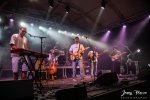
Evan Rhys & the Stereo Streets @ Festival of Lights - Pukekura Park, New Plymouth - 18/01/2025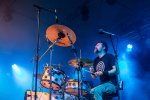
Midwave Breaks @ Festival of Lights - Pukekura Park, New Plymouth - 18/01/2025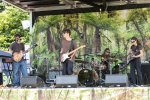
Rumpus Machine @ Music in Parks, Aotea Square, Auckland - 18/01/2025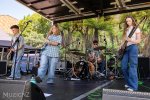
Fan Club @ Music in Parks, Aotea Square, Auckland - 18/01/2025
NZ Top 10 Singles
- APT.
ROSÉ And Bruno Mars - DIE WITH A SMILE
Lady Gaga And Bruno Mars - BIRDS OF A FEATHER
Billie Eilish - TASTE
Sabrina Carpenter - I LOVE YOU, I'M SORRY
Gracie Abrams - ESPRESSO
Sabrina Carpenter - SAILOR SONG
Gigi Perez - LOSE CONTROL
Teddy Swims - A BAR SONG (TIPSY)
Shaboozey - GOOD LUCK, BABE!
Chappell Roan





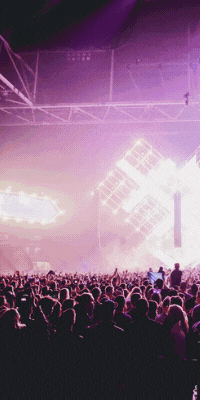


 Report A Problem
Report A Problem

